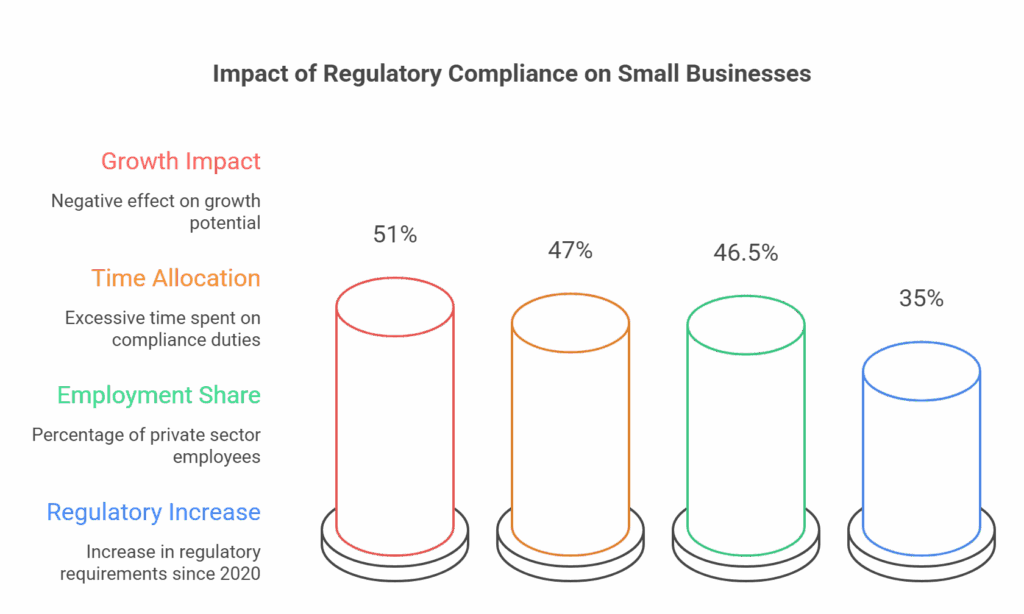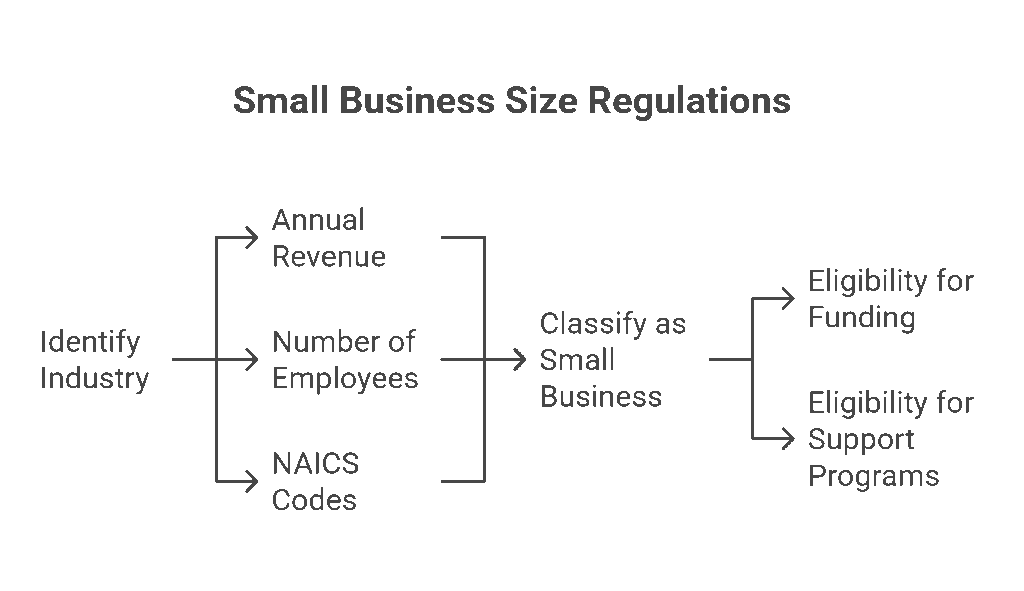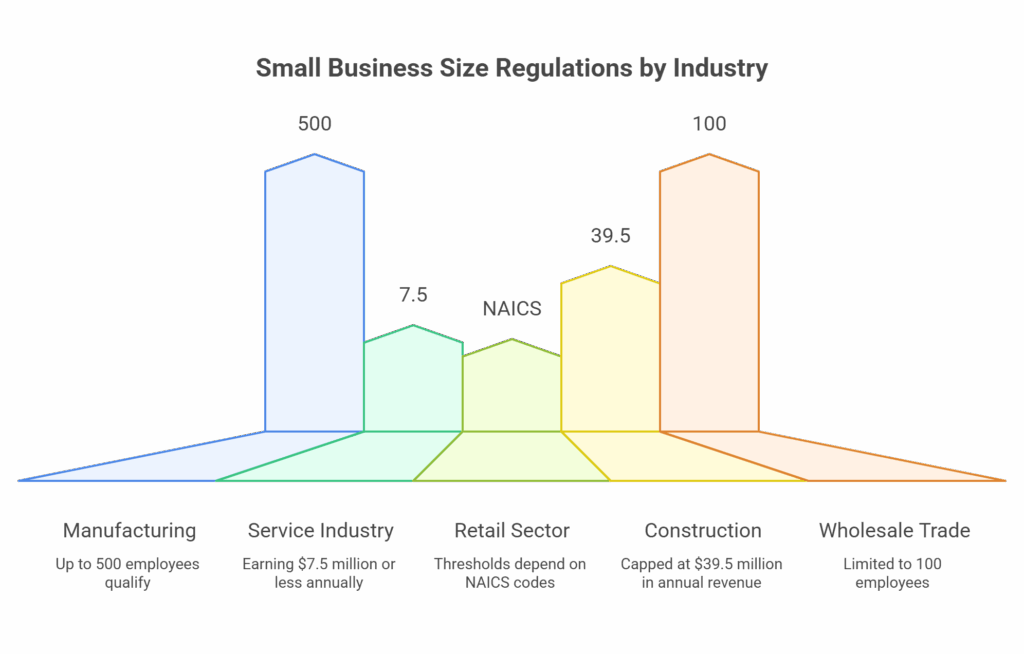Small business size regulations are critical for determining whether your business qualifies for government contracts, SBA loans, and other support programs. These regulations set clear thresholds—based on revenue, employee count, and industry type—to define what constitutes a “small” business.
Understanding these rules is key to unlocking funding, tax benefits, and exclusive opportunities. In this post, we’ll explore how small business size regulations work, why they matter, and how tools like Fuzen can help you stay compliant while focusing on growth.
What are Small Business Size Standards and Why They Matter
Small business size regulations define whether a company qualifies as a small business under government standards. These classifications are crucial for accessing support programs.
- Set by agencies like the U.S. Small Business Administration (SBA)
- Based on employee count, annual revenue, and industry type
- Help determine eligibility for government contracts and tax benefits
- Crucial for accessing SBA loans and federal grants
- Vary by sector—tech, manufacturing, retail all have different limits
- Staying within these limits keeps your business compliant and competitive
Complying with small business size regulations opens doors to funding, growth resources, and partnership opportunities that can accelerate your business journey.
How Are Size Standards Determined?
Small business size regulations are set using a few key metrics that vary by industry. These ensure fair classification across sectors.
- Annual Revenue – Common in service-based industries
→ Businesses earning up to $7.5 million annually may qualify as small - Number of Employees – Often used for manufacturing
→ Typically, 500 or fewer employees meet the small business threshold - NAICS Codes – Industry-specific classification system
→ Helps align size standards with sector-specific characteristics
Understanding how small business size regulations are applied ensures you're accurately classified and eligible for essential funding and support programs.
Examples of Size Thresholds Across Sectors
Small business size regulations vary by industry, with different thresholds based on how each sector operates.
- Manufacturing – Up to 500 employees typically qualifies as a small business
- Service Industry – Businesses earning $7.5 million or less in annual receipts
- Retail Sector – Thresholds depend on NAICS codes and specific subsectors
- Construction – Often capped at $39.5 million in annual revenue
- Wholesale Trade – Commonly limited to 100 employees
Knowing these industry-specific thresholds helps businesses stay compliant with small business size regulations and remain eligible for government-backed advantages.
Benefits of Staying Within Size Regulations
Following small business size regulations offers more than compliance—it’s a gateway to strategic advantages.
- Funding Access – Unlock eligibility for SBA loans, grants, and financial programs
- Tax Benefits – Qualify for deductions and credits designed for small businesses
- Government Contracts – Gain access to contracts reserved specifically for small businesses
- Less Competition – Easier entry into regulated markets with fewer large competitors
- Support Programs – Benefit from mentorship, training, and development initiatives
Adhering to size regulations positions your business for long-term growth, financial stability, and access to exclusive support opportunities.
Leverage Technology with Fuzen for Better Compliance
Managing operations while staying aligned with small business size regulations can be overwhelming—especially without the right tools. That’s where Fuzen steps in, offering a tech-powered solution to streamline compliance and operations.
- Build a Custom CRM Easily
Fuzen’s no-code custom CRM workflow helps you create a system that fits your workflow—no tech skills needed. - Stay Compliant with Small Business Size Regulations
Track revenue, employee details, and essential data in one place to ensure your business qualifies as “small” under official standards. - Store Documentation & Automate Workflows
Organize key files, automate compliance tracking, and generate reports to prove eligibility when needed. - Minimal Cost Setup
Unlike most SaaS platforms, Fuzen offers a minimal cost setup—saving money while you scale. - AI-Powered Efficiency
Describe your needs, and Fuzen’s AI builds the system for you. Automate lead tracking, follow-ups, and compliance checks effortlessly. - Start Quickly with Ready-to-Use Templates
Choose from CRM templates tailored for small businesses, then customize with drag-and-drop tools.
Fuzen is built for solopreneurs and small business owners who want to simplify operations and stay compliant with small business size regulations. Its no-code, AI-powered platform helps you work smarter—without needing a tech team or a large budget.
Conclusion
Small business size standards play a crucial role in determining whether a business qualifies for government-backed benefits such as contracts, funding, and tax incentives. Understanding and adhering to small business size regulations ensures you're positioned to access these valuable opportunities. However, staying compliant while managing day-to-day operations can be challenging, especially for solopreneurs and small teams.
That’s where Fuzen becomes invaluable. With its no-code CRM builder, AI-powered automation, and ready-to-use templates, Fuzen helps businesses stay organized, prove eligibility, and meet compliance requirements effortlessly. Plus, with a one-time cost model, it’s a budget-friendly solution for long-term growth. Whether you're just starting or scaling steadily, leveraging Fuzen allows you to focus more on strategy and innovation, and less on administrative hurdles.
Explore Fuzen to simplify compliance and accelerate growth.

Pushkar is a seasoned SaaS entrepreneur. A graduate from IIT Bombay, Pushkar has been building and scaling SaaS / micro SaaS ventures since early 2010s. When he witnesses the struggle of non technical micro SaaS entrepreneurs first hand, he decided to build Fuzen as a nocode solution to help these micro SaaS builders.




